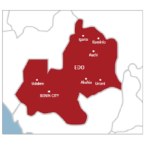
Teachers in Nigeria and around the world celebrated World Teachers’ Day on Wednesday last week, October. It was on that day five decades ago that a Special Intergovernmental Conference adopted the UNESCO-ILO Recommendation on the Status of Teachers. This year’s World Teachers’ Day had the theme ‘Valuing Teachers, Improving on their Status’. It was a day to celebrate the importance of teachers in national development and review the challenges hindering their professional efficiency.
In his speech to mark the occasion, National President of Nigeria Union of Teachers (NUT) Comrade Michael Alogba Olukoya berated the federal government for not honouring teachers in this year’s celebration. He said government ‘failed to host the event and to institute the Presidential Teachers’ and Schools’ Awards which is one of the high points of the yearly celebration. Olukoya also expressed dismay with the irregular payment of teachers’ salaries across the country. He urged all tiers of government to pay up all unpaid salaries owed teachers in primary and secondary schools in the federation or face a strike action to be declared soon.
A recent newspaper survey carried found that teachers in Benue State, for example, are owed seven months’ unpaid salaries. While teachers in Gombe were lamenting the omission of 3,674 teachers’ names from the state government’s pay roll, 60% of Kogi State teachers have reportedly not been paid for many months. In Niger State, teachers have either not been paid for months or were paid a part of their monthly salaries. Even when the federal government gave bailout funds to state governments to settle arrears of workers’ salaries, many state governments paid other categories of workers as well as contractors but left out teachers.
Educationists have said that “of all the factors that affect teachers’ status, none is more important than salary.” Prompt payment of teachers’ salaries and better remuneration package are both a measure of the importance a country attaches to the teaching profession and also its recognition of the contributions of teachers to national development. The UNESCO-ILO document, to which date of adoption the annual World Teachers’ Day owes its origin, clearly articulates that the salary paid to teachers should enable them have a decent standard of living and should also be comparable to what is paid to other professions requiring similar levels of training or qualification.
Sadly, teachers in Nigeria are the lowest paid public servants. They are the only group of public sector workers that are regularly paid late, if at all. Former Minister of Education Malam Ibrahim Shekarau summed up this paradox when he said, “We entrust our most precious assets, i.e. our children, to a teacher and we expect him to bring them up as responsible members of the society. Then we turn around as a society and maltreat the same teacher.”
Although the NUT urged has urged government to address discrimination in the terminal grade of teachers in both primary and secondary schools across the country, it would be unprofessional to request for the same scheme of service for teachers who do not possess any teaching qualifications and are not on the education officers’ cadre. Registrar/Chief Executive of the Teachers Registration Council of Nigeria (TRCN) Professor Olusegun Ajiboye has said only a well-equipped and motivated teacher can impart the right knowledge to preserve the future of Nigeria.
Government must therefore work towards improving teachers’ working conditions and welfare including the provision of meaningful incentives and adequate opportunities for their professional career development. Efforts should be made to ensure that Teachers’ Salary Scale (TSS) which entails a 20% increase in basic salary becomes a reality. So far, few states in the country have implemented the TSS approved by the National Council on Education at its 50th session held in Yenagoa, Bayelsa State 13 years ago. The Federal Ministry of Education should develop a policy framework that will commit state ministries of education to make the UNESCO-ILO document a reference point in the improvement of the status of teachers in Nigeria.

 Join Daily Trust WhatsApp Community For Quick Access To News and Happenings Around You.
Join Daily Trust WhatsApp Community For Quick Access To News and Happenings Around You.



